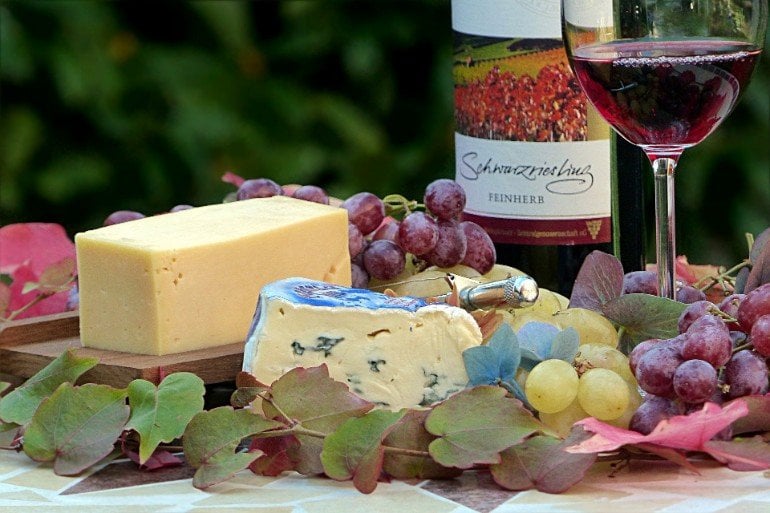Participants also answered questions about their food and alcohol consumption at baseline and through two follow-up assessments. The Food Frequency Questionnaire asked participants about their intake of fresh fruit, dried fruit, raw vegetables and salad, cooked vegetables, oily fish, lean fish, processed meat, poultry, beef, lamb, pork, cheese, bread, cereal, tea and coffee, beer and cider, red wine, white wine and champaign and liquor.
Here are four of the most significant findings from the study:
- Cheese, by far, was shown to be the most protective food against age-related cognitive problems, even late into life;
- The daily consumption of alchohol, particularly red wine, was related to improvements in cognitive function;
- Weekly consumption of lamb, but not other red meats, was shown to improve long-term cognitive prowess; and
- Excessive consumption of salt is bad, but only individuals already at risk for Alzheimer’s Disease may need to watch their intake to avoid cognitive problems over time.

“I was pleasantly surprised that our results suggest that responsibly eating cheese and drinking red wine daily are not just good for helping us cope with our current COVID-19 pandemic, but perhaps also dealing with an increasingly complex world that never seems to slow down,” Willette said. “While we took into account whether this was just due to what well-off people eat and drink, randomized clinical trials are needed to determine if making easy changes in our diet could help our brains in significant ways.”
Klinedinst added, “Depending on the genetic factors you carry, some individuals seem to be more protected from the effects of Alzheimers, while other seem to be at greater risk. That said, I believe the right food choices can prevent the disease and cognitive decline altogether. Perhaps the silver bullet we’re looking for is upgrading how we eat. Knowing what that entails contributes to a better understanding of Alzheimer’s and putting this disease in a reverse trajectory.”
Willette and Klinedinst acknowledge the valuable contributions of the other members of the research team: Scott Le, Colleen Pappas, Nathan Hoth, Amy Pollpeter and Qian Wang in the Iowa State department of Food Science and Human Nutrition; Brittany Larsen, Neuroscience graduate program at Iowa State; Yueying Wang and Li Wang, department of Statistics at Iowa State; Shan Yu, department of Statistics, University of Virginia; Karin Allenspach, department of Veterinary Clinical Sciences at Iowa State; Jonathan Mochel, department of Biomedical Sciences at Iowa State; and David Bennett, Rush Alzheimer’s Disease Center, Rush Medical Center, Rush University.
About this cognition and diet research news
Source: Iowa State University
Contact: Auriel Willette – Iowa State University
Image: The image is in the public domain